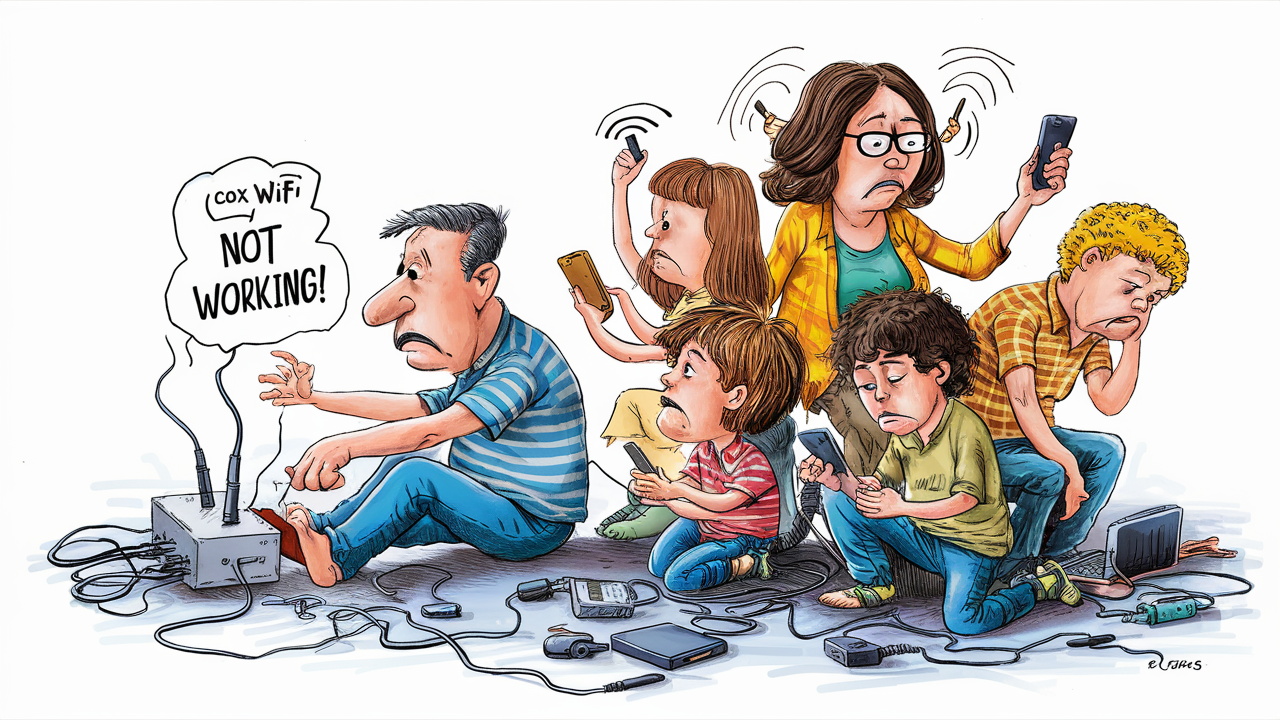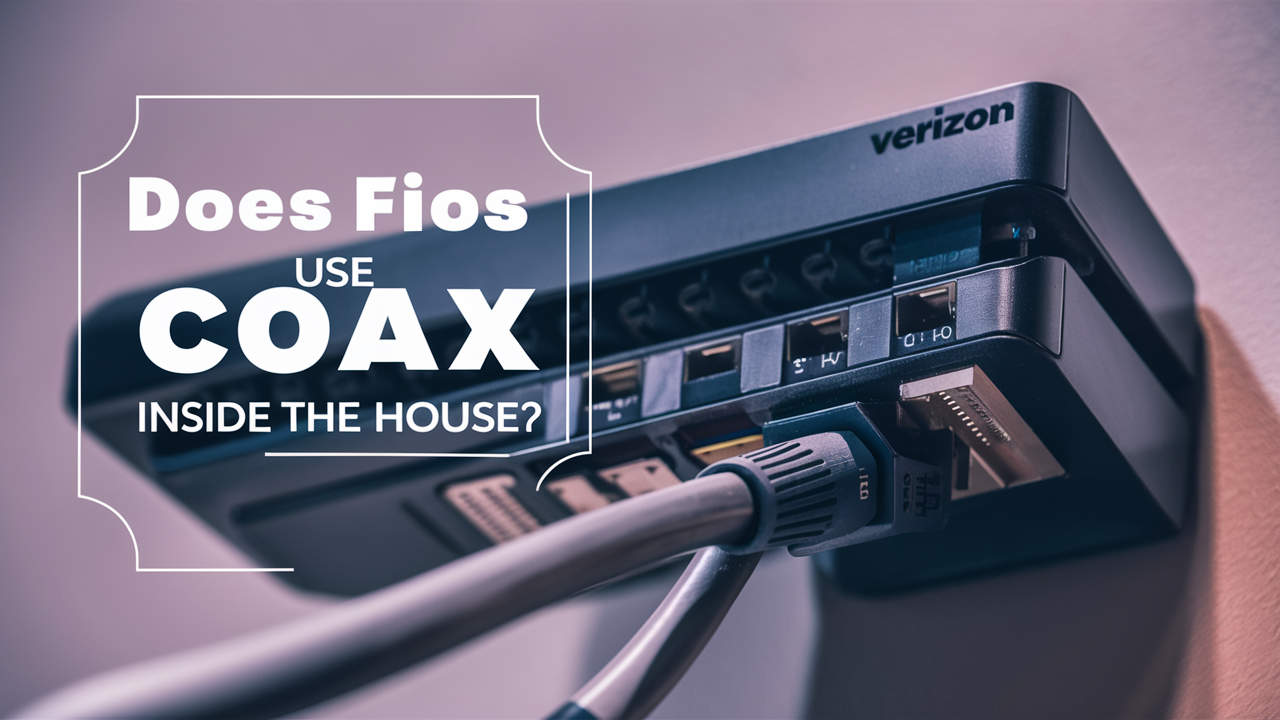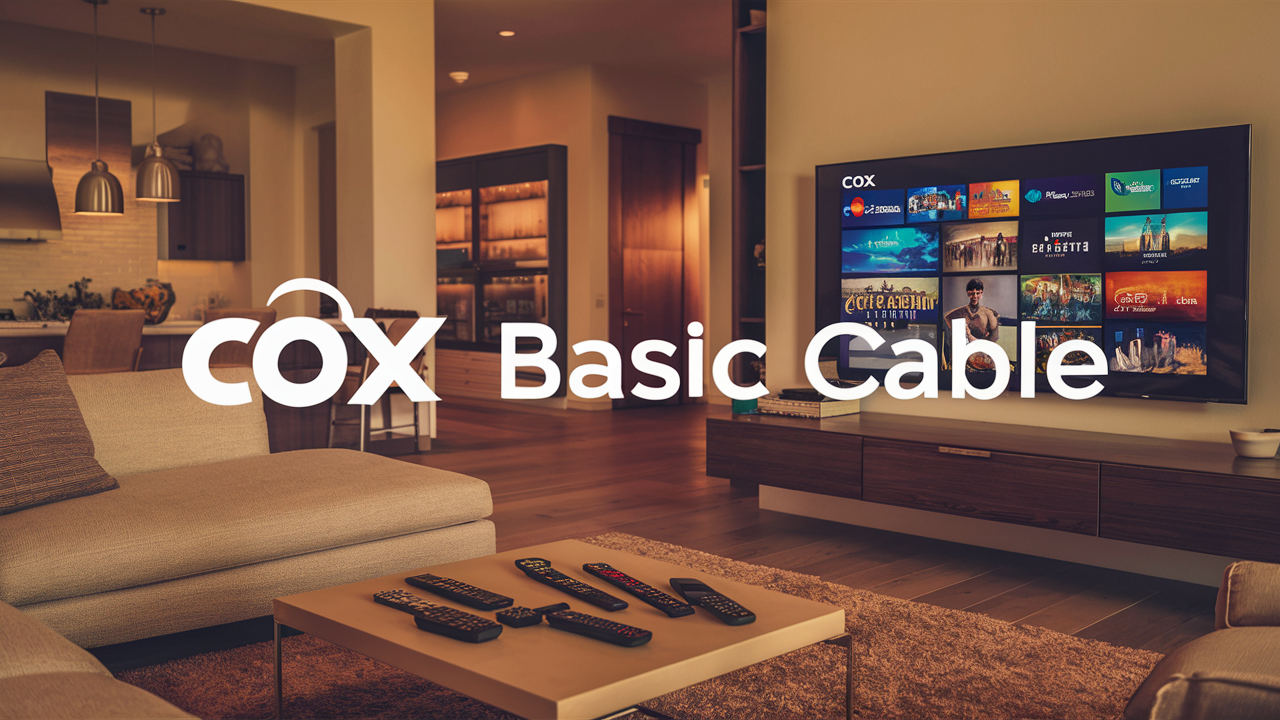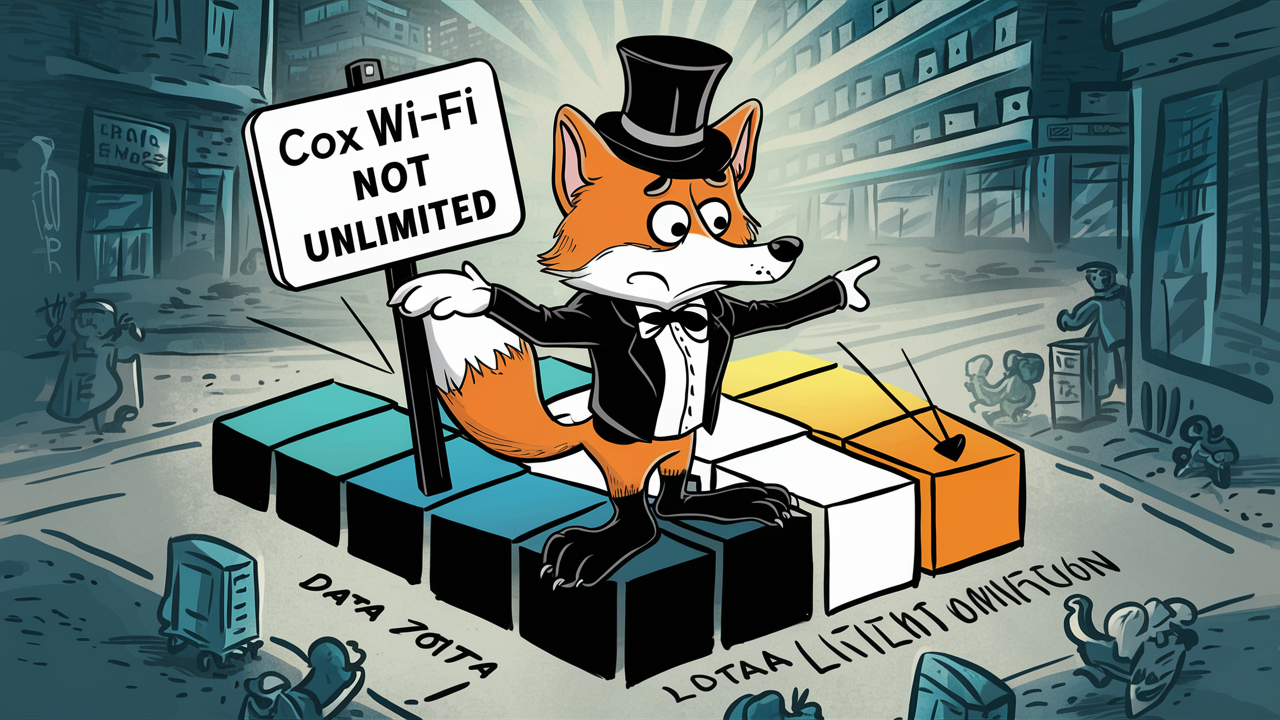Why is Cox WiFi not Working?

As you might know, various factors can cause your Cox WiFi not to work properly or even stop working completely. To rectify them that will help in fixing the causes of the interruptions to bring back normal usage of the internet using the Cox WiFi network. Below are some of the common issues that you might experience with Cox WiFi connection and how you can go about it.
Outage in Your Area
Cox WiFi issues could be due to the outage or interruption of Internet service providers within your area are among the issues that are widely reported. There can be different reasons for such network outages as cases of damaged cables, faulty pieces of hardware located in local hubs, or overloaded network traffic. During a blackout, it causes complete disruption of internet access, depending on the area that is affected.
To check the Cox outage map, go to the website or download the mobile app to see whether the company has recorded any outages in your area. You can also read more regarding the estimated downtime/restore status. In case there is an outage that is still ongoing, there is little that the user can do apart from waiting for the Cox repair teams to attend to the issue. Typically, the major blackouts are restored in the course of a few hours or at most within a day.
WiFi Router Issues
Interference with your WiFi router or modem disrupts the internet data flow, which leads to Cox WiFi network problems. It is important to note that not all router issues result in WiFi connectivity drops, but various issues such as hardware failures, and firmware glitches could lead to disruptions.
In case you have problems with WiFi at your place and not all devices connected to it are functioning properly, the problems are with the router. You can begin with simple measures such as re-powering the modem+router and having a check on loose power and Ethernet cables. If that does not work, try resetting the router to its factory state. Use it if normal functions are not restored even after resetting, and cable checks require a new unit.
Weak WiFi Signals
This means that even when the Cox broadband service is strong and effective, its wireless nature can make the WiFi connection slow and inconsistent. WiFi signal issues are a result of some factors including; placement of the router, interference by appliances, and other materials in the way.
The only wireless devices are those that are being affected by the WiFi disconnection frequently. If this is the case, then it could be due to a weak signal. To debug, move your router to a different physical location, assess the distribution of signal strength within your house, and reduce potential sources of interference. Antennas can also be increased to enhance the signals for the exclusion of dead zones, and incorporating a WiFi range extender also encourages the signals.
Circuit Overloads
Tripped circuit breaker: This is another subtle cause of Cox internet outages that people rarely consider, but it explains many interruptions in home electric systems. If you are operating many appliances, for instance, AC, microwave, and vacuum cleaners at the same time, it will draw many watts and may trip the circuits that supply your Internet devices.
This involves checking your house power distribution box and observing whether any of the switches are in mid-position as opposed to up or down position, which shows that the circuit has tripped. Turn off and reset circuits that have tripped, and plug your WiFi equipment, such as modem and router, into a dedicated power outlet and avoid sharing the same power strip as other appliances. This helps to avoid a recurrence of overload of the circuit, leading to connectivity issues.
Faulty Cox Equipment
Even though all equipment is subjected to a range of tests, there are cases where dead modems, routers, or receivers delivered to homes by Cox may consistently make the consumers experience WiFi problems. Issues such as temperature, unresponsiveness, and computer restarts are evident when equipment is at fault.
If your Cox internet continues to disconnect despite following all the processes discussed above, then it could be a problem with the Cox-provided modem on the cable modem router. Call the representatives of the Cox service provider to describe the problems and demand a new modem or router that you think is flawed. Having them replaced should help to alleviate these issues and achieve better WiFi connectivity.
VPN Conflicts
VPN service is an application that directs all your internet connections through a secure and encrypted channel to enhance security and privacy. However, some VPN apps prevent internet connections from being made on local network interfaces upon connection. This leads to Cox WiFi becoming unresponsive as soon as the VPN is on, which in turn restricts internet access for other connected devices in the house.
To avoid such complications, ensure that your VPN applications are not set to turn off access to the local network once the remote secured connection is established. Vice versa, only allow VPN on specific devices that may need it, not on routers that offer net access to other devices through WiFi or cable.
Parental Control Restrictions
Using the Cox parental control, their child’s devices can be controlled depending on the content type, and the time they spend online. If the setting is too tight, it means that the devices on which the WiFi is being used will be denied access, and hence the WiFi will not function properly.
You should ensure that your kids are not complaining of non-working WiFi only on the devices they are using, while it functions properly for other people at home. Try to disconnect the Cox parental controls for a time and observe how the WiFi connection is. If so then modify the restrictions to a standard setting so that normal traffic is not being denied.
IP Address Conflicts
Every device that connects to a home network gets its private IP address to facilitate the routing of packets just like 192.168.1.5. Suppose a certain IP address is given to two devices randomly; one will get the right connectivity while the other will fail to access any data at all.
Some of the issues that are commonly encountered include IP conflicts, and these are usually more frequent in the case of WiFi than when using hardwired devices. This kind of conflict can be solved by restarting the modems and routers as this will lead to new IP assignments. In case of continued difficulties, the conflict can be checked by looking at the device IP addresses from the router’s admin panel. Disconnect the problematic device from the network and set its IP address individually to rule out problems.
Temporary Performance Issues
Sometimes Cox WiFi network is not very stable and it has periods of low speeds high latency and frequent buffering. This could be due to a temporary, short period of activity in a specific neighborhood, routing issues between hosts, packets that contain errors or simply timed out.
It is normal to have occasional issues where the wireless or wired connection is lost, for example, but such issues sort themselves out in a few minutes without any user intervention, as the internal check identifies the issue and addresses it. Therefore, before going through further troubleshooting, when you come across temporary Cox WiFi issues, do not proceed before waiting for approximately 5- 10 minutes to determine if the problem sorts itself out.
Network Congestion
Essentially, the Cox network is designed to provide customers with gigabit internet speed by dividing the geographical areas into smaller and more manageable groups. However, if many users within your locality are streaming videos or playing online games during such times, then it can congest the bandwidth. This causes congestion within the network available in your locality and hence, Cox WiFi speeds are affected for all users.
If you reconnect your router, you can get a new connection, which may help it seem less congested for the time being. Another measure is avoiding excessive bandwidth consumption at home when such problems are observed, for example, by limiting the number of bandwidth-hungry activities simultaneously. For frequent problems, one may opt to get a higher Cox speed tier that offers higher data bandwidth so that the internet does not slow down during the heaviest neighborhood traffic.
Incompatible Frequency Bands
Current routers in the market are dual-band which works both at 2.4 GHz and 5 GHz for wifi connectivity. If your device has the 2.4Ghz WiFi adapter only and the router transmits the SSID in 5GHz by default, there will be no signals which will eventually lead to an adverse wireless connection.
Another thing you should verify is whether your problematic device is solely dependent on the older 2.4GHz band for WiFi, which is being axed in some of the latest routers. If yes, turn on support and SSID broadcast for the 2.4GHz connection alongside the 5GHz connection from the router admin interface. And, if there are gadgets that require the legacy frequency, set them to connect to only the correct SSID.
Network Resource Exhaustion
The number of connected clients, active data sessions, and assigned IP addresses for each router varies depending on the capacities of each WiFi router. A mistake that may be made is to try to connect more devices than the specific router model can handle, which causes the firmware to panic and subsequent crashing of WiFi services whenever the limit is reached.
If your home WiFi was perfectly fine, with let’s say, 5-6 devices able to connect to the internet with no hitches and starts to behave erratically after more devices are connected, then the network resource exhaustion could be the bugbear. However, typical consumer routers are quite capable of handling only up to 15-20 connected WiFi client devices at a time. Besides that, you will require additional high-end commercial routers.
Ready to upgrade your internet experience? Call us now at +1 844-349-7575 to explore the best Cox Internet plans for your needs!





